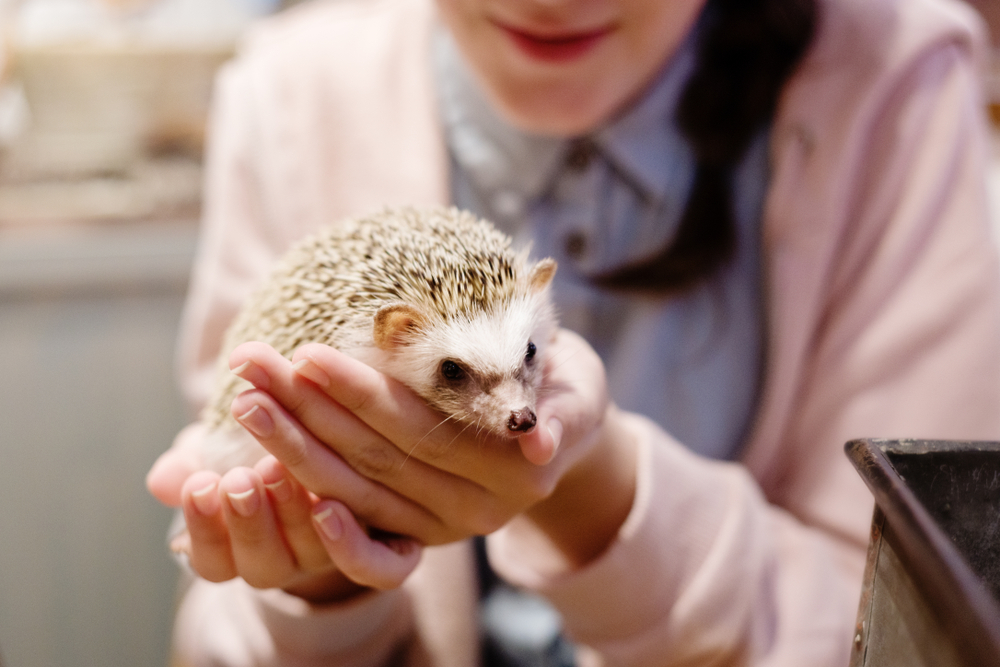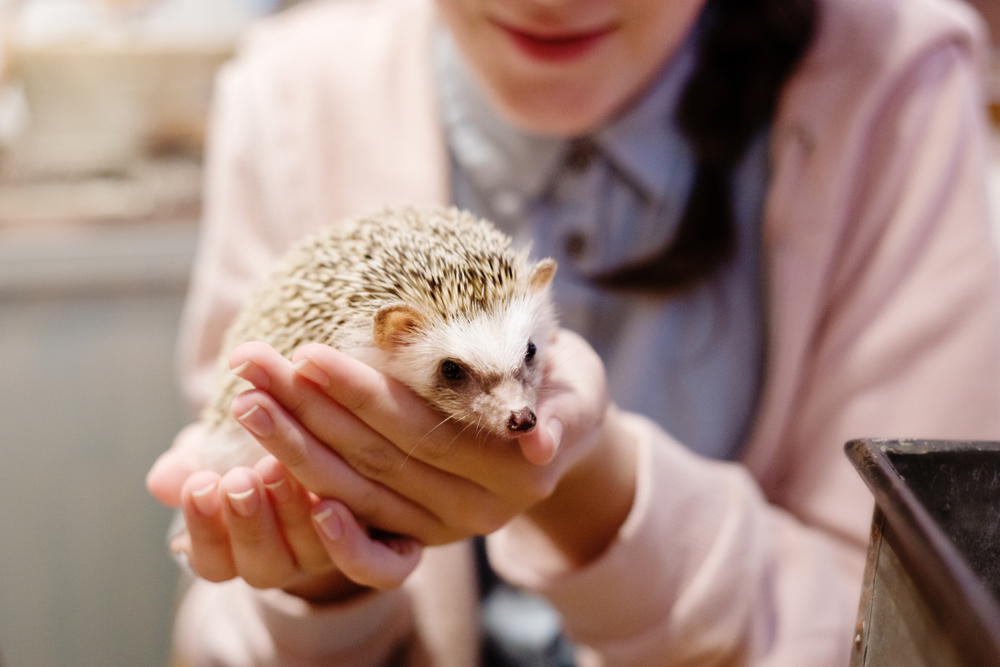
Exploring the Controversy: Are Japanese Animal Cafes a Bad Idea? Animal cafes in Japan offer a wide range of experiences; some offer the opportunity to mingle with cats, dogs or other often domesticated creatures while enjoying drinks and sometimes food.
Others provide hands-on experience with exotic and, in some cases, endangered species. Many of these cafes have become Instagram sensations, and if you visit one, it’s hard not to be seduced by the allure of the adorable creatures. But how safe are they for animals?
Harry’s Zoo Cafe /Are They a Good or Bad Idea?
You can visit one of these cafes in the epicenter of Tokyo’s youth culture – Harajuku district. Harry’s Zoo Cafe has over a dozen Asian otters with small claws available for close encounters.
The Asian small-clawed otter is the smallest of the 13 otter species; weighs under 10 pounds and is usually about 2 feet long. Also listed as a vulnerable species on the International Union for Conservation of Nature’s Red List of Threatened Species, and only about 5,000 Asian small-clawed otters are thought to be left in the wild.
In the cafe you can feed the otters with sardines; a favorite food that elicits excitement, vocalization, and begging behavior. It’s an admirable performance, and it’s not hard to see why animal cafes are rapidly growing in popularity not only in Japan but also in other Asian countries.
Exotic animal cafes
However, these cafes are not without controversy. In Japan, these cafes are lightly regulated, and critics say this is a big problem, especially in those cafes that feature exotic creatures.
Recently a research in the diary Conservation Science and Practice looked at over 140 exotic animal cafes and found 403 species of creatures that belong to 52 endangered species. The study highlights the many risks and concerns experts are increasingly expressing about the rise in popularity of exotic animal cafes.
“Exotic animal cafes are a threat to biodiversity,” said Dr. Marie Sigeau, a veterinarian and wildlife biologist at the National Museum of Natural History in Paris and lead author of the study. “They encourage the ownership of exotic species. We found that 25 percent of EACs surveyed offer purchasing options. Some of the species are already endangered or may become endangered due to the demand for them in the international wildlife trade.
The the origins of the species available in exotic animal cafes are often unclear. Although domesticated species such as cats and dogs are bred in Japan, other more exotic species are imported. Trapping and exporting wild creatures can deplete natural ecosystems and contribute to the decline of wild species that may already be under stress from other factors such as development and climate change.
Typically, these animals will not breed in captivity. While Japan is not the only country to have exotic animal cafes, it is unique in certain ways.
“What makes Japan special is the lack of regulation of zoo-like businesses, as well as its geographic location – close to important biodiversity hotspots and major wildlife trade routes – which greatly favors the arrival of many species,” says Sigo. “In general, the lack of regulation of exotic animal ownership is also concerning.”
Other problems with exotic animal cafes
Perhaps the most troubling concern surrounding exotic animal cafes is the potential for disease transmission. Recently, we have witnessed pandemics caused by the transmission of viruses between wild species and humans.
In fact, recently, COVID-19 has been linked to transmission of pathogens from raccoon dogs of people in a wet market in Wuhan, China. Critics point out that the setting of these exotic animal cafes can inadvertently provide an ideal environment for disease transmission, especially since many of the animals may not feel comfortable being in captivity or around humans.
These zoos can cause stress to the animals, which can cause them to shed viruses. The fact that food and drink is served in close proximity to exotic creatures is particularly worrying as it creates an easy route for potential disease transmission. Although cross-contamination with domestic species can occur, we are generally aware of the diseases that domestic animals can carry and know how to treat them.
“Non-domestic or exotic species pose an even higher risk than domestic species because we don’t know if they’re carrying something dangerous or not,” says Dr. Marci Souza, professor of veterinary medicine at the University of Tennessee. “It could be an unknown disease because there’s a lot floating around that hasn’t been discovered yet.”
Despite the criticism and concerns surrounding exotic animal cafes, experts don’t expect their current popularity to be curtailed anytime soon.

